|
Klammer - You Have Been Processed (Under Dogz Records) Have you ever experienced this? You get done listening to a great new record and think that you have discovered a great new band only to find out they have a back catalog? It leaves you frustrated and thinking, "Where in the hell have I been that I've not heard of them before?". Fortunately that feeling fades quickly by the thought, "Cool! I can get more of their stuff!". This is exactly how I feel about Klammer. 'You Have Been Processed' is the third album by the Leeds band who were formed in 2012 by Engineer/Producer Steve Whitfield, who has worked the gamut from Bill Bruford's Earthworks, to The Cure to The Trash Can Sinatras. I can see where people draw comparisons to the band from The Damned, The Chameleons and Gang of Four but there is another I cannot help but bring up and (of course) it is a bit more obscure but they really remind me of New Fast Automatic Daffodils. That is really down to vocalist Paul (Poss) Strickland's delivery, though he has more vibrato in his vocal than New FADs Andy Spearpoint's more spoken approach. But it is there and Poss' pipes are one of the hallmarks of this band along with the tight rhythm section of Mike Addy on bass, Bruno Almeida on drums and of course, Steve's masterful guitar textures. Clocking in at a little over 40 minutes, the album eases up into the driving (no pun intended....well maybe) "Coast to Coast" with it's bass and guitar interplay through the verse leading into a wonderful wash of the two in harmony for the chorus. This goes into the lead-off single, "Modern God" with a nice intro of Joy Division-esque dissonant guitar harmonics over a pounding beat. And speaking of singles, the latest from this opus, "Spiral Girl" has some beautiful guitar tones and a sing-song chorus that you can imagine a huge group of people pumping their fists and screaming as they jump up and down to the rhythm. Don't miss the limited edition 7inch with non-album track "Half Life". "Baddest Blocks" is a straight up hearkening back to the glory days of the Pistols and The Damned. This should easily be the next single with it's infectious mix of the Rotten vocals mixed with Sensible hooks. It all closes with the anthemic "A Long Cold Summer" replete with the mantra, "Life will be the death of you". Paint that on your leather! These guys have definitely bridged the gap left by Interpol of infectious, catchy, hook filled, dark post-punk. The world needs to wake up and embrace this band. I know it's not everyone's cuppa but after listening to this album repeated times I feel a certain duty to help spread the word because of the genuineness that is reflected in every single note. It's not a labored affair. Their songs get in and get out. They plant the seeds of remembrance and leave you with the songs echoing in your head until the next time you have to put it on. As of July 13, ‘Modern God’ and 'Spiral Girl' are available through online stores and streaming platforms, as well as from Klammer's own website. While the ‘You Have Been Processed’ album will be available on vinyl and CD as of August 10, it can already be pre-ordered via Bandcamp. TOUR DATES AUG 18 Leeds - Brudenell Social Club OCT 28 London - London Punk Sessions @ The Windmill Brixton Visit https://www.klammer.co.uk for more https://klammerband.bandcamp.com 
Michael Mitchell's love of music started at an early age and slowly became an addiction that courses through his veins to this very day. It is guaranteed that if you are in his proximity that he will try to get you to travel to the nearest record store and make you buy beyond your means. His wife and two children acknowledge his problem and continue to encourage him into rehab.
7/31/2018 Bright Pink Blow Up Doll By T. BardouBright Pink Blow Up Doll I am a bright pink blow up doll with a hank of yellow hair mouth a round lipsticked O costumed in spangles, glitter, and air my body a miracle of impossible anatomy squeaking rubber and quivering jello bridled by cinching steel bones I prance coquettishly in stiletto heels bleeding where I cut off my toes with a razor. The barker bawls: Your attention, Gentlemen, please! Behind this very curtain, tonight on our stage for your viewing pleasure, the enticing striptease enacted by the delectable Mistress of Helotry! A bona fide professional: she’s been broken in since childhood even as a tiny girl well-worth a plattered prophet’s head. And as she’s always willing, a veritable bargain at this price! Lay your money down, and assuredly, I say to you this very night you will be with her in Paradise! The band sounds: Ta-ra-ra-ra-boom-de-ay! With dissonant clash of cymbals, rattling boom of the snare the curtain gapes, and the interminable show begins. I am exposed and blinded in the ferocious floodlight glare yet I am lambent and fearless, for I know all their secret sins. I am the Queen of Artifice, Sorceress of Green Mirrors, Seducer of Men: no life on earth is safe from my dreaming. My mind and heart empty, I reflect back every desire until the crowd is gutted on dreams and utterly spent. At last, to the clamor of vociferous applause, I bow my head, battered by the rain of sweaty silver coins. Over the garish sound of the hurdy-gurdy I cannot hear the song of the mermaid and yearn for her forbidden kiss.  T. Bardou is originally from New York City, where she received a degree in classical languages and classical civilization. Bardou has made a living at varied careers, including as a fencing instructor, a personal trainer, a research assistant, and a Latin tutor. Bardou is currently on active duty military and, as a physician, has spent most of her career caring for active duty soldiers, and has recently gone back to a second residency for psychiatry so that she may better help them with their suffering. She lives in MD and is a mother, a poet, a painter, as well as a resident in psychiatry. 7/31/2018 Kali By Jonathan HineKali as she walked across the room successive frames of herself trailed in her wake she stopped. the images collapsed into each other as she lit a cigarette her hand left a stream of static copies in its path then merged with her arm when she set the lighter down i have to tell you something, she said yesterday i found all the dishes smashed on the kitchen floor her face shone with an inner light numinous in its significance Jonathan Hine’s work has appeared most recently in In Between Hangovers, Hobo Camp Review, Synchronized Chaos and Pyrokinection. He has forthcoming poetry in Midnight Lane Boutique. 7/30/2018 Poetry By Darren C. Demareewith an empathy so fatal #91 we are on the ground because our hands are not the tips of wings we are meant to stay held next to a part of the nest the all hunger when we flatten ourselves to challenge gravity that is when we drop our neighbors when we make promises to the wind we are as worthless as a held breath spittle that escapes without any projection with an empathy so fatal #92 suns go dead we have hope only because we know the other eyes blink as well we are only alone when we believe ourselves to be suns go dead & i don’t know how to make that okay for children to know i do know i do know that if they can hold your hand when you tell them they will move on without horror Darren C. Demaree's poems have appeared, or are scheduled to appear in numerous magazines/journals, including Hotel Amerika, Diode, Meridian, New Letters, Diagram, and the Colorado Review. He is the author of eight poetry collections, most recently ''Two Towns Over' (March 2018), which was selected as the winner of the Louise Bogan Award by Trio House Press. He is the Managing Editor of the Best of the Net Anthology and Ovenbird Poetry. He is currently living and writing in Columbus, Ohio with his wife and children. Death Wish All in all you're just another brick in the wall When I was 16 Two tabs under/over Glass rained over Me, the shotgun On the table The goat in The henhouse the Grapes were eyeballs And she said Jump! She said, we Are so beautiful A carton of Camel Lights later Talent is A blowjob Under the table... Skate park Homemade halfpipe Lost inhaler, lost sister She said it--- Jump. You go first... He didn't touch You He once touched Me too Let's jump--- Look, it's like Heaven Cheekbone cracked Joey if only u wur My boyfriend A 17 year old virgin What's the point--- Looney Bin calling Me home Dark brother Or maybe my Lost father In the night. Elisabeth Horan is a poet and mother living in Vermont who has struggled with major depression and anxiety most of her adult life. Most recently, she survived severe postpartum depression which, after the birth of her second son, almost destroyed her. She hopes her poetry might let others, who may be suffering in silence, know that they are not alone. Please hang on Pain Pilgrim, there is hope. @ehoranpoet, [email protected] Amy Alexander is a poet, journalist, and visual artist. Her artwork has been shown at Baton Rouge Gallery, The Coates Gallery, The LSU Women's Center, and at the Shaw Center for the Arts. Her artwork has appeared in Cease, Cows and the cover of Mansion, forthcoming from Dancing Girl Press, in 2019. 7/29/2018 Nightfall By Howie GoodNightfall Your body begins to tremble like it’s not yours anymore. You can’t hear the person next to you. You're looking around and you're seeing ruin. At some point you must figure out, “OK, this is real, this isn’t.” You're in a country that is dissolving because of XY and Z. Embers of darkness come swirling down. You think, “I’m going to drown,” “I’m going to die,” “I’m going to lose everything.” You feel your brain is wider than the sky. You probably have fantasies of China, too. It’s beautiful, isn’t it? Howie Good is the author of The Loser's Guide to Street Fighting, winner of the 2017 Lorien Prize. His latest book is I'm Not a Robot, forthcoming from Tolsun Books. He co-edit the journals UnLost and Unbroken and the chapbook publisher White Knuckle Press with Dale Wisely. 7/27/2018 Billy’s Daughter By Sascha Aurora AkhtarBilly’s Daughter Filet Mignon It was the simple action of chopping a carrot in thin strips – ‘julienne,’ that kept her father close. It was in the meticulous execution of a recipe, in the contemplation of the sheen and tone on an aubergine that he redeemed himself, quietly, one coq a vin, one filet mignon at a time. Sarah asks her butcher for pork medallions, he says he’s got something really special for her ‘raised in the West Country’ – he points out the glorious marbling in the crimson depths of the raw tender flesh. He shows her how dark liquid just oozes out of it if pressed ever so lightly ‘Fresh, Bloody just how we like it,’ he grins. Tonight at the restaurant she will be serving a feast of flesh. She had had another dream and her father was in it. He was bloody, wrapped in bandages from head to toe. She didn’t know why. She wanted to help him, she tried but there was no way to. He was too far gone. She had woken up feeling intensely disturbed. She wondered all day what it meant, and why he never appeared in her dreams unless he was disfigured, distorted or in pain. She hasn’t seen him in 22 years and before that she has met him twice. The rest of her memories are from the initial four years of her life when he was still with them. She has no happy memories of him, the only positive images she has are of him talking about food or preparing food like when she was seven years old and he came to visit with his new wife and little daughter. He invited them all for dinner to the fancy hotel he was staying at. He ordered something called fee-lay min-yon she remembered wondering what it was, having never heard anything so strange. In her home, food was a simple affair, mostly cooked by her Grandmother. Shephard’s Pie. Stew and Yorkshire Pudding. Her child’s curiousity was piqued. He talked about the fee-lay min-yon for quite a while, extolling its merits to the company at the table. He was a mesmerizing one-man show. When it arrived she cast sneaky glances at his plate, too intimidated by this mystery man who had come to visit, who was apparently her father, to exhibit too much direct interest. It seemed a very boring, flat, grayish looking piece of meat with some saucey thing on it. She felt utterly disappointed but he said it was wonderful between every loving mouthful. She was not to see him for another nine years after that. *** Cephalopod As she sat at the kitchen table, hopeful, he opened the refrigerator. His wife was not around which made this a rare moment when perhaps they would have a conversation with some meaning; a conversation she may be able to carry in her memory. Perhaps he would tell her how sorry he was that he left them when she was four years old or possibly how he thought of her always. He closed the refrigerator door. He had a jar dwarfed by his large frame in his hands. He took the lid off and she could make out small pieces of something unidentifiable – pink, purple, bruised. He gingerly inserted a finger into the jar and pulled out his precious quarry. He held it out in front of his face for a moment with a passionate gleam in his eyes before he popped it into his mouth. She saw to her shock a few tendrils resembling tentacles hanging on his lips, their suction cups visible before it all disappeared into the cavern of his mouth. ‘Delicious! Pickled Octopus. You have some! You have to!’ he turned his attention onto her, oblivious to the horror on her face at the spectacle of his carnivorous self. ‘No thank you. I’ve told you. I’m vegetarian’. He snorted derisively. ‘Is this what your mother has taught you?’ ‘No, I just don’t like meat of any kind – and especially not a…baby..Octopus’ she winced, barely able to get the words out without gagging. He launched into a lengthy speech about how his precious jar was not just ‘octopus’ but rare baby (insert name) octopus, culled only in (insert month) by Maori fishermen in (insert remote location) and then pickled for (insert specific length of time) in (insert ingredient) at the finest gourmet shop in Auckland, New Zealand. Thereby, believing he was instilling in her at this very late juncture, the values of epicurean pursuits; a gift to her, because certainly in his own eyes, he was a gift also, to humanity. Thankfully, he was so moved by his own love for the finer things that he did not attempt to force the gangly cephalopods onto her. She shifted slowly away from the table and scurried away to a safer corner of his house. *** Scorpion She has a slim selection of memories from her childhood, her proper childhood. She remembers her father often clad only in a towel. He would be yelling and growling, his face contorted. Growling in a towel. Apparently, he reached into her mother’s sewing kit for something and got bitten – by a scorpion. They lived in, Peshawar, dry and hot, known to have scorpions, and snakes. He had been in excruciating pain. She imagines she saw the scorpion, but wonders how that could have been. He had thought he had been pricked by a needle, but it had turned out to be this land crustacean-type deal. He shrieked. She remembers standing in the living room with her mother. Her mother is looking at x-rays of her father’s hands. Sarah asks her ‘Will Daddy be okay?’ Her mother replies, ‘I don’t care if he is,’ with a great deal of bitterness in her voice. She doesn’t remember anything else. Just a dark space, like a cut-out removed from its background. *** Daughter An envelope arrived that day adorned with stamps and markings indicating that it was from very, very far away. Her mother told her later that over the years, a few things had come in the post for her from her father. She hadn’t given them to her. ‘I didn’t want you to have any contact with him’. For some reason, her mother let her have this envelope. There was a birthday card in it wishing her a happy 8th birthday (she was 7), signed in an almost illegible hand - Love Daddy. She would stare at the words for years afterwards, trying to get some clue from them as to who the man who had written them was. She waited for them to tell her something, but they never gave away anything, just that the man who wrote them was perhaps someone in a hurry or possibly never learnt to write. The clipping was what troubled her. It was a newspaper article with his name splashed across the front, and a large colour photo of him in a chef’s jacket, his hair black and curly as she knew it to be. He was leaning over a work surface chopping an assortment of vegetables with a little girl. The little girl was also wearing a small chef’s jacket, and she had on a black and white chequered bandana. She would never forget that bandana. This was his new daughter. He looked industrious, energetic, full of promise and hope. The article talked of his culinary prowess and his skills as a successful restauranteer. Apparently, he owned a few. As a child, she was unable to understand what she felt when she saw that photo of him and his daughter, but she remembered the sensation – it was a blankness. She noticed something very odd. They called him Chef Billy. Billy Murelli. That wasn’t his name; but there it was in black and white print. He had a new name and a new family. There was no-one to ask about this. Her mother would snarl. *** Clam Chowder Right out of college, having graduated in photography, multi-media production and film, she had a burning desire - to be a waitress. It was impossible in Pakistan. Waitressing was not an opportunity available to women, and living in America she learnt the way. All her American friends had worked as teenagers still in school, they were expected to. They were in fact expected to get jobs at the first opportunity they got. This was the Way. She assumed she was lucky that she did not have to do that growing up, but she didn’t mind the idea. The promise of independence was exciting. She was drawn to the romance of being a waitress. She was also drawn inexplicably to the idea of working in a restaurant. She told her mother, ‘Everyone who graduates from college has to work as a waitress here, it’s practically a rite of passage!’ Living in a small town after graduating, her choices were not many or varied. Low-cost dining was the prevailing order of things; diners, cafes, neither of which afforded many opportunities for tips or refined clientele – but she didn’t know that. She didn’t know much about working in a restaurant. Paradise Inn it was; a motor lodge with an attached restaurant that fancied itself as up market. She got the job and was expected to wear a standard issue white shirt with a black bow-tie, regulation shoes, and a little black apron. It was quite thrilling. *** Paradise Inn was constantly besiged by coach-loads of old folks on tour through the scenic beauty of New England. This was not-so thrilling. It meant being inundated by more people than the restaurant could handle and working double-time. Leaf Peepers! I am so sick of these Leaf Peepers! Tammy the single mom and veteran waitress would say referring to the activity of these people of coming to view the golds, russets and reds of the Autumn foliage. The most disgusting thing to serve in Paradise was a cream-coloured gloopy semi-liquid with hints of pink things and things with shells floating under the surface; Clam Chowder. This the elderly Leaf-peepers ordered in abundance. The smell of it was revolting. As she would roll out bowl after bowl, the glamour of the job slowly disappeared. Every now and then she would see Billy. Billy was the owner of the restaurant and Inn. He wasn’t always around. Sometimes in the evening he would be dressed in a smart dark green shirt and a gold chain. He would hang around the bar area being jolly, talking to customers. Billy was the one who hired her. He had a brusque no-nonsense attitude; a man of a few words. On the day she interviewed at the Paradise Inn, he had been wearing his white Chef’s jacket, chequered trousers, an apron and a wipe cloth slung over his shoulder. Standing in the dimly-lit, musky bar with its dark old wood and deer heads on the wall, he had asked her: So you ever been a waitress before? She had worked in the college café, snack bar and kitchens all through college. Ok then you can start Wednesday. And that was it. As she walked out of the inn, she pondered on the fact that his name was Billy. Are you my father Billy? Will I be a waitress in my father’s restaurant? *** She would scrape her hair back into a neat chignon, and wear a little bit of black eyeliner and a touch of pink lipstick. The little old ladies seemed to love her. Oh you look like Audrey Hepburn dear they would say gleefully. I am Audrey Hepburn working in my father Billy’s restaurant. It was entirely unpleasant back in the kitchens though. The Chef “ Chuck” was a very large pear-shaped hillbilly with a mullet always wearing a baseball cap. The panache of Billy at the front was nowhere visible in the back. It was like a slave-ship, with the taskmaster cracking his whip – in this case Chuck. He made her very uncomfortable, and she did her best to minimize her interaction. A pop song had come out it went A little bit of Jessica on my mind, A little bit of Monica blah blah blah, A little bit of …. Unfortunately, they had waitresses by two or three of those names working in the restaurant. That summer that was all Chuck sang every time any of the waitresses came into the kitchen. The job didn’t last long. She had to say goodbye to Billy and move on. *** Calamari She was sitting at the dining table again, her father was behind the counter messing about in the kitchen. Today I’m going to make Calamari! She nodded her head. She had not seen much of her father on this trip, which had not panned out to be what she had hoped for. For example: a time of firsts i.e. her first meeting with her father since she was 7. The first time she had even visited him in his new home and new life. The first time she had travelled so far – from Pakistan all the way to Australia – and alone. However, his wife seemed to have taken it upon herself to check all the boxes of a stereotypical ‘stepmother,’ figure, and so was heinous. Instead of taking her out and showing her around, they seemed to not really care that she was there at all. So she hung around their beautiful house while they were at work and school. Once in a while they would drop her off at the local mall where she could spend the day. She ignored him when he talked of the Calamari because he knew she was mostly vegetarian. She had never even seen it before. It looked odd so shiny and white like bathroom fittings. It was hard to imagine it was ever divested with life. She had no desire to eat it. When he made the honey Chicken she had eaten it, and she had had to concede it was the most mind-blowing chicken she had ever tasted. He had spread it out like a sheet, coated it and cooked it and for the rest of her life she would be trying to find that taste again. She heard the pan sizzling, as she turned another page. She glanced over at him, all frenzied with his hair thick, black and curly standing atop his head wearing one of his customary silk shirts. He seemed completely focused. He came over to the table and slammed a bowl down in front of her. Here. Eat this! She looked up his dark, towering figure and saw that he was completely serious. No way am I eating that! I told you I don’t this stuff… I don’t care, he said. I’m not eating it! You have to eat it. He insisted. You can’t force me to eat this she said. Then he pulled the I’m-your-father line which she could not believe he had the nerve to do. She was 16 and had never lived with him a day in her life, and told him as much. He had not been around and there was no way he could start insisting on ‘fixing’ what he saw as mistakes in her upbringing now. But he was a little intimidating, and for some reason decided not to back down. She had to taste it. She picked up a slimy, white ring of Calamari with her finger from the bowl. He sat next to here literally pouring piece after piece into his mouth with gusto. He looked to her like an invading barbarian conqueror. As the Calamari hit her tongue, she gagged. It was the most unpleasant sensation she could imagine. It tasted of absolutely nothing, except the epitome of slipperiness. She stuggled to swallow it, but her gullet was not co-operating. She felt the bile rising and the Calamari came out as she hastily brought her hand to her mouth. He was just watching her slowly chewing his food. She gave him the dirtiest look she could muster and ran out of the kitchen. *** He told her not to tell anyone that she was visiting from Pakistan. Say you’re from my Turkish wife, he said matter-of factly. People are very racist here. Sarah found herself puzzled at this. He also refused to speak Urdu with her. His face would go blank, as if he did not understand what she was saying, but he understood. It was in his eyes. Speak English, he said after she tried a few times. She only did it because she thought it could be something they would share, but he was not the man for it. If anyone asks you my name is Billy Murelli and I am of Italian descent. When he came out with this she was completely floored. What do you mean? Well I’m pretty sure we must have Italian blood somewhere, people always ask me if I am Italian. In her mid- 20’s, no longer a wayward college student of whom emotional instability is expected – when she was well past the age where fucking up is de rigeur, when she had taken control of albeit, a few aspects of her life, she became aware of a feeling or more accurately a lack of feeling. This sense came over her often; she knew she was living, ostensibly breathing but taking no joy in anything made her feel less than alive. After all the men, the drugs, the laughter and forgetting, the destructive aspirations, all the murderous intentions towards herself, the mayhem wreaked of her own mind it was just her, empty. For most of her life, her body had seemed irrelevant to her. She had no awareness of it. After college, she encountered a condition whereby she couldn’t feed herself. Her mind would draw a blank. In college, despite the less-than- tempting food served in the dining halls, it was at the very least, taken care of. Now she had no idea what to do, as if she had regressed to being an infant unable to sustain herself. She would starve herself. Unable to decide what to eat, unable to function as a human being, she would wind up in a kind of self-perpetuating paralysis. Getting weaker from hunger, she would then be completely unable to think straight or have the energy to go out and seek food. Her boyfriend would be gone all day and he would come home to find her mute, numb and bewildered. It was impossible to sustain this disorder. It could only lead to bad things, and she knew this. Death was one thing, but there were many stops along the way that this take her. She attempted to get to the bottom of it, but found herself wholly in the dark, unable to understand her body’s resistance to sustenance and her mind’s decision to boycott existence. So it became a matter of ignoring it and pretending it wasn’t there, by not allowing herself get to the point of no return. The only way to do this was to eat; not ‘think’ about eating or what to eat, but just to put the first thing available into her mouth, chew and swallow. She was at a yard sale when her eyes fell on an old 1970’s Kenwood food mixer. It seemed to invoke limitless possibilities so she picked it up for three dollars. She tried to pinpoint what it was she actually remembered enjoying eating. Someone told her lentils were really easy to make. She liked lentils. She looked up recipes. She tried to make lentils and just leave it in the fridge. Hummus was easy to eat; she supposed she liked it just fine, but it was expensive to buy small tubs of. She looked up recipes and used the old Kenwood mixer. Breaking the homogenous paste that was hummus down into its components, then going out and purchasing them individually – tahini, some garlic, chickpeas – felt oddly satisfying. Watching everything then become homogenous, as the blades of the mixer wore them down into a liquefied form was exciting. It tasted like nothing she had ever tasted before. After the hummus, she embarked on a culinary journey. She got cookbooks and experimented with her own version of falafels, inviting her friends over for ‘falafel parties’ where the idea was to load up on condiments of your own choosing. She made lemon drop soup, quiche from scratch and pan-fried filet steaks for her boyfriend. It was like her father was never closer. *** Sara had heard her father was ‘somewhere in London or the Netherlands’. That was the only information she had had about him in years, and it stayed permanently swirling in the mist in her head; an errant piece of knowledge that could mean everything to someone, but meant nothing to her. And yet it was all she had, so she held onto it. She moved to London eventually from her college town in the U.S.A. She imagined she could run into her father at anytime. He could be walking down Goodge Street and there she would be face-to-face with him. And then what? She had no notions beyond this; she didn’t even know if the thought of running into him was something she was happy about. It just haunted her. About a year after Sara had re-located, she was looking for a flat and saw a listing in the paper that said 2 bedroom, Finsbury Park. Must Be Seen. Call Billy. Immediately that part of her mind that created these fantasies started buzzing. She knew he had dabbled in property in Australia. This could be him. Billy wasn’t a common name as such. ‘Allo? Hi I’m inquring about the property in Finsbury Park? The 2 bedroom? Aoo Yeah that’s already gone Ahm afraid. It was the darndest thing. His accent was Australian. She tried to keep him on the phone as long as possible as her heart thumped inanely in her chest. It was him! It had to be him! She hung up the phone and stared and it. She schemed for days as to how she could meet this Billy even though the flat was gone. She never shared these scenarios she created with anyone. This was a private madness that took her over every so often. She never rang Billy back but always looked over her shoulder when walking the streets of London in case she saw him, anywhere. *** Snake Very green walls. A jarring pistachio green. The room is not spacious or open. The ceiling seems low. They were living together as a family at the time in a small-town where he was working as a Banquet Manager in the big hotel there. Her mother used to stay up at night sewing clothes for her dolls. She said she couldn’t sleep back then. That was when she saw a thick, black snake winding its way around his white sneakers. She screamed. Sara was three at the time, still sleeping in a cot. She couldn’t possibly remember any of this. But she did. She remembered her father, chasing the snake through the room with the green walls. She was in her cot. His face was angry. She remembered her father cutting the head of the snake off. That was the only way to kill them. She remembers for as long as they lived there thick droplets of blood stained the concrete floor of the green room. They never came off. *** The only way she ever liked eating avocados was with lashings of lemon squeezed over it, ample salt and copious pepper. The green flesh speckled with the black and white granules comforted her. It was a taste she could always be sure of. It was odd, she thought that she never met anyone else who ate it like that or even enjoyed it when she insisted they taste it. It was at the same table where the Calamari incident took place that she was introduced to them at the age of 16. ‘Have you had Avocados?’ ‘No,’ she replied having never even seen one. Her father looked incredulous. He reached for the fruit bowl and extracted a green object the shape of a Russian nesting doll, and cut it in half. His hands, large and spade-like, made quick work of the lemons as he squeezed them over the avocado. He handed her the plate after peppering and salting, ‘This is the only way to eat them,’ he said. It was the best thing she had eaten since she coming to visit him. Sixteen years later, eating avocados was a bizarre ritual. As if by doing so, she was invoking the one positive memory she had of him, the one thing he had ever given her. Every time she ate one, it was like she was putting another stitch on the massive hole she had been trying to darn her whole life, left by his absence. *** Gordon Ramsay Leading up to her 30’s, Sara becomes obsessed with television shows about cooking food, eating food or restaurants. In America it was Iron Chef, in London it was Gordon Ramsay and Come Dine With Me. Watching Gordon Ramsay, she imagines her father watching it too. They watch it together. They laugh together, marveling at the force of nature that is Ramsay. She is aware of how much like her father he is; loud, persuasive, aggressive, foul-tempered - passionate. Other times, something inside her watches silently. Gordon Ramsay is her father. In one of the episodes, there is a chef named Luigi that GR has come to help. Sara wonders if ‘Luigi’ really is Luigi or is he a guy who decided he was Italian and gave himself an Italian name. Gordon Ramsay asks him what the hell he has done to the Calamari. It’s a fucking disaster. Gordon Ramsay says to Luigi: ‘I don’t believe you are the same young maestro I met from 30 years ago – you’ve lost your sparkle!’ She wonders if her father too has lost his sparkle from the article so long ago when his hair was thick, black and curly, his features finely carved. Luigi terrorizes his employees: ‘Why the fuck you gotta answer back? Just give me the fucking mushrooms!’ Luigi is a ticking bomb just like Billy (Murelli). Now Luigi is her father. Luigi’s arrogance is monumental, he says to Gordon Ramsay: ‘I’ve worked with more chefs in my 30 years than you. I’ll pit my food against you anytime’. Sara watches Gordon Ramsey interviewing Luigi’s Italian staff and family – her imaginary father’s imaginary Italian family. The closest thing that there is to a young woman like Sara in the family, is a middle-aged Italian lady, possibly a cousin. They cook together, they live together, they eat together, they war together. ‘Likeafamily’, shouts Luigi, his fingers expressing his emotions as they waggle wildly about. Sara becomes Alana, the middle-aged cousin. She is yelling. ‘We may be family, but I am sick of you Luigi’. Gordon Ramsay. Wants all of them to shut the fuck up. Luigi. Storms out in a huff. Snakes. Octopi emerging from Gordon Ramsay’s mouth. A scorpion attached to each finger. There she is, there’s Sara. Sara in a cot. She’s gnawing on something, as she drools. It’s a pure marble white, but rubbery and smooth. Her little gums dig eagerly into its flesh, as it bounces back with resilience. Seeking comfort. Her mouth needs soothing. Little white dots appear on the rim of her gums. An eruption. Teeth. Bite. White flesh. She wakes up on the couch, the distinct taste of Calamari in her mouth. *** SASCHA AURORA AKHTAR, is a trans-race, multi-dimensional, sub rosa poeto/story-bot. She was patented in Pakistan. Had upgrades in pre- 9/11 U.S.A. Was released onto shelves in the U.K.Her roboto-poetics have been widely anthologised and translated into Armenian, Portuguese, Galician, Russian, Dutch and Polish. Anthologies include Cathecism: Poems for Pussy Riot (2012) andOut of Everywhere (Reality Street, 2015). She has also been part of poetry protests – Against Rape (Peony Moon, 2014), Solidarity Park Poetry – Poems for the Turkish resistance (Ed. 2013). Her most recent collection is 199 Japanese Names for Japanese Trees (Shearsman, 2016). Her fiction has appeared in STORGY, Tears In The Fence and BlazeVox. She is currently working on a book of translations for Oxford University Press due to be published in 2019. 7/27/2018 Poetry By Kassie ShanafeltBasic You Chaco-wearing-thrift-store-baby-armpit-haired hipster. A thousand pumpkin spiced lattes course through your veins, and they call you basic. You’re a lipstick-stained mimosa glass with pulp clinging to the sides. Unstrained has never looked as desirable as you. You’re a line, and people in New York City will wait on you without a clue what they are waiting for. You’re a large popcorn with butter oozing out of the bag. You’re a ballpoint pen. You’re a spare room. A side of avocado. A brand new brand name bed. You’re a moleskin waiting to be filled with meaning. A half a million strands of perfectly highlighted hair. Bleached until the darkness is washed out and the memories fried. Alternate Universe Where I Do Not Try To Fit In During High School after Olivia Gatwood In an alternate version of reality, when the cheerleader from home economics class asks me to join her group for the cooking contest as the official onion cutter, I boil a pot of my best friends saltiest tears and serve them as soup. When the resident cool mom gets me a pack of Smirnoff Ice for my sixteenth birthday, I mix them with finger paints and smear them all over her front porch. When the school counselor calls my mother to tell her I’m running around with a bad crowd, I embroider scarlet letters on the entire student body’s letterman jackets. When the boy at the video store gives me free popcorn, I pour it out along the highway creating a trail that doesn’t lead to anything. When my parents tie me to a curfew that is three inches long, I paint it gold and wear it around my neck like a chain. I do not cut my hair. I do not spend my weekends disorganizing the shelves at Walmart. I don’t get breakouts because I don’t wear makeup. I can see the reflection of this version of myself in a sliding subway door, but I cannot touch her. She is on her way to be something more. Bio: Kassie lives in Brooklyn. Her writing has appeared in Cauldron Anthology, Coffin Bell Journal, Philosophical Idiot, and others. She enjoys true crime podcasts, mangos, and cats. 7/26/2018 Jane Gayre By Charlie-Anne Butterworth Jane Gayre I I obey his directions and Mr Rochester pricks me. I say nothing, but judge. Mr Rochester does not take much time, did no better - did nothing wonderful. He, so risen, before I would even fancy him. In each case, distance. Relief was the mast, flecked with foam. My drowned corpse spread, in what used to be a woman’s shape. Now I am dim, a pale reflection - a vapour. This was the pinnacle of dim lances. I rose, throwing myself into the distance. II Blanche. I regarded her with special interest, imagine the fancy taste of her. Her shape was splendid, physically speaking, and by candlelight perfect: throat inflated, features darkened, in a position fierce. She mouthed inflection short, her voice a shawl. My sloping shoulders, ringlets all unfurrowed. Point for point: bust, neck, dark eyes, arched lip. Face low, I entered into flowers. She sang to her mama. Wild Miss Ingram - her execution was brilliant. Open skin, eye lustre. I would know the taste of female beauty, attired in Miss Ingram. I liked her, did admire her. III Mr Rochester summoned Colonel Dent. Dent looked at the man’s fastening head - he allowed the other down, observing the notion. The bulky figure chosen before him, draped in Mr Rochester. Rochester knelt while Dent took up behind. A ceremony, a show, a marriage - at its termination the Colonel called out, as Mr Rochester fell, rose, then elapsed elaborately. The two recognised admiration, incredulity and delight. They laid their heads together, not word or syllable spoke. IV The collective of ladies and gentlemen form black sparks over my figure. Mary Ingram, Mr Eshton, Mrs Dent, Henry Lynn, Mrs Fairfax - I feel akin to their searching eyes; they took influence from my own power that mastered me. Saw them sweet, harsh and gentle. Penetrating movements, drinks from my well of divine draught, acute pleasure, pure gold - colour rises in my brain and my heart as the guests at last rendered my lap full. At last, full. 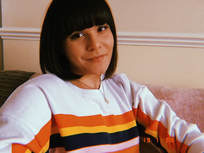 CHARLIE-ANNE BUTTERWORTH is a Creative Writing graduate, speculative fiction author, satire poet and urban cryptid from East London. She is usually a science-fiction writer but likes to give motion to her personal identity through experimental fiction and poetry. She refers to her creative process as ‘word wrangling’ and is inspired by the works of Octavia E. Butler and Margaret Atwood. Her work has been featured in Fincham Press’s The Unseen anthology and Pyre Publishing’s Reap What You Sow zine. Follow her on Twitter @cabwrites. 7/25/2018 Note to Self By Lekan AleshNote to Self there's a city of silicon and processed ore five miles away its men glow of electric pulse and have a particular accent the stuff of god you see it from your doorpost each time someone breaks your heart or beat it so hard it drums cracked choruses perhaps it's all in your head: the music of rejection on a certain stage streaming/screaming the rugged love made of copper twist, turn, and fold into sad stories but never break perhaps love is the song two crackling wires hum while unassuming cables burn away  Lekan Alesh is founding editor at the Electronic Pamphlet. His poems were recently published by Philosophical Idiot, Event Horizon, Smeuse Poetry, Sentinel Literary Quarterly, and Ann Arbor Review. He tweets @IM_alesh |
AuthorWrite something about yourself. No need to be fancy, just an overview. Archives
April 2024
Categories |


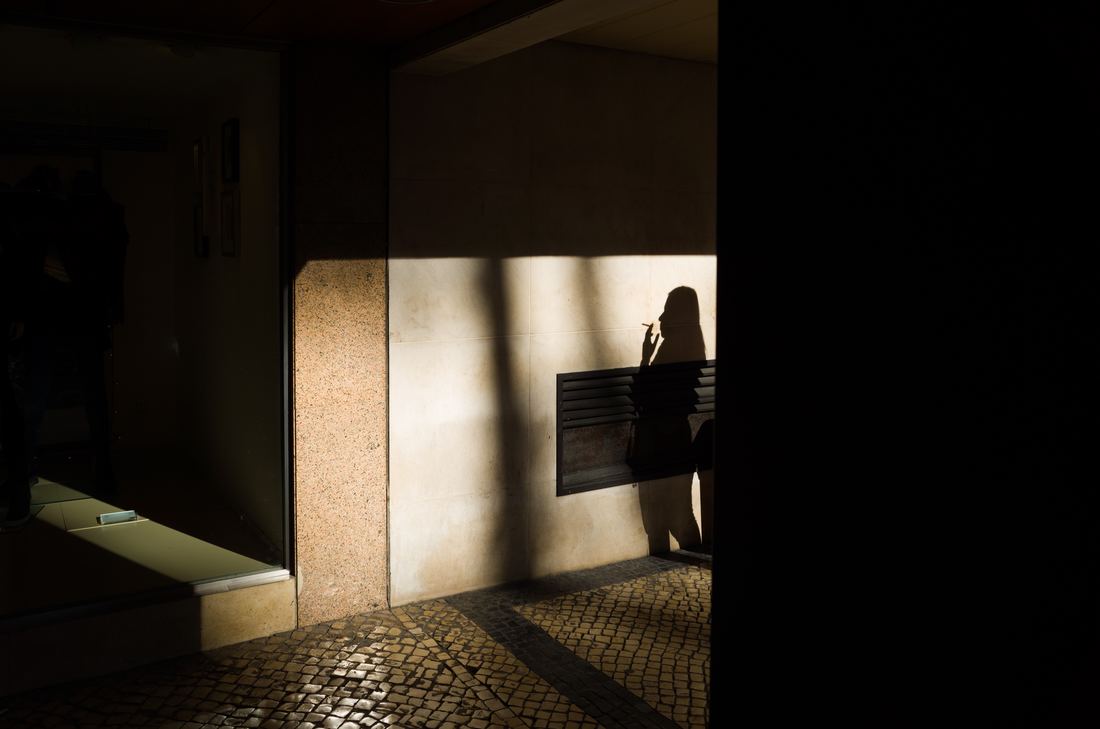

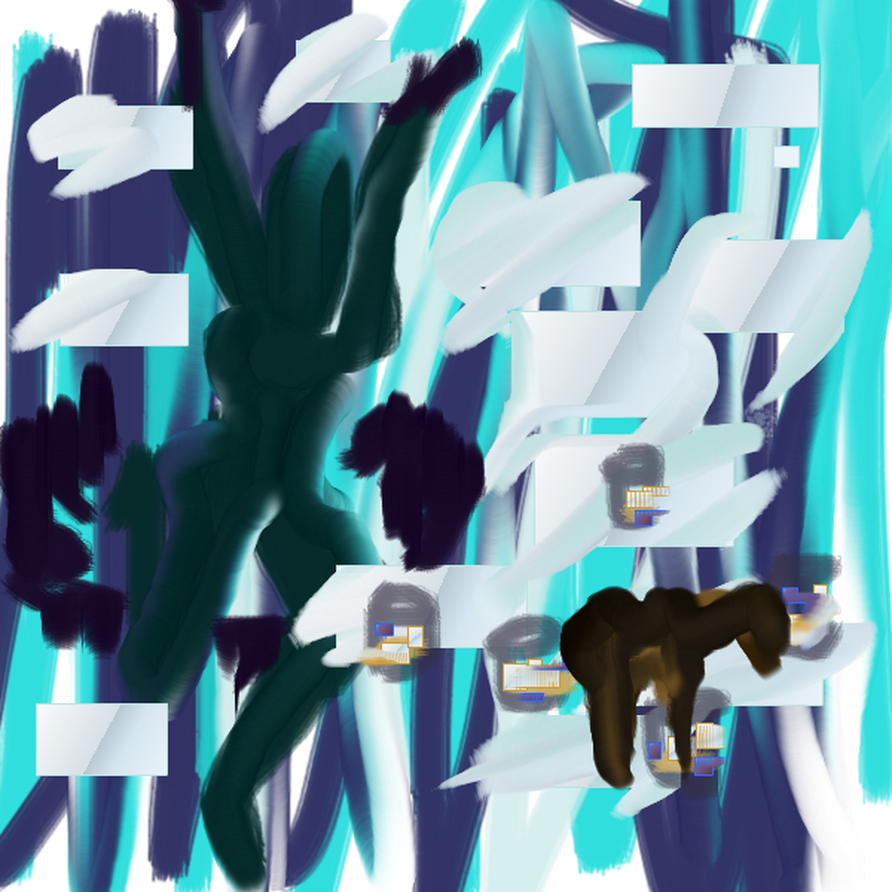
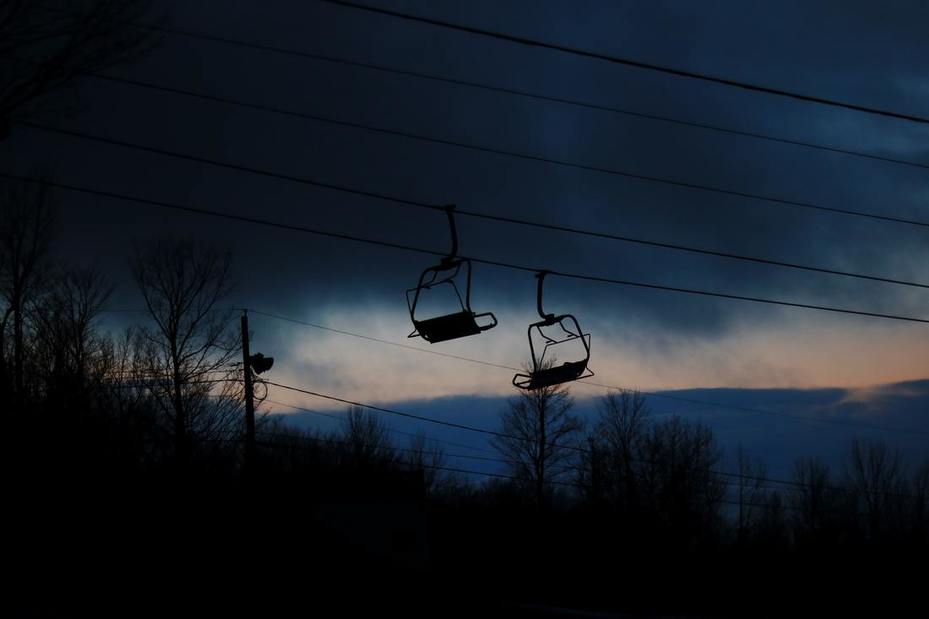
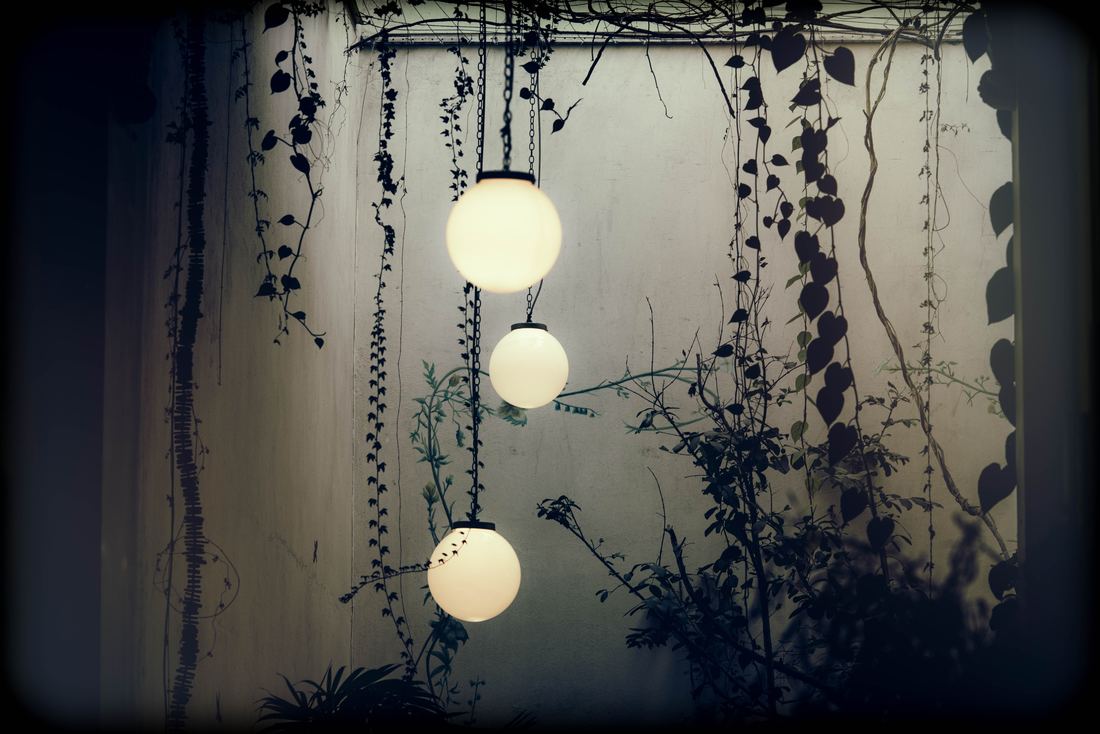
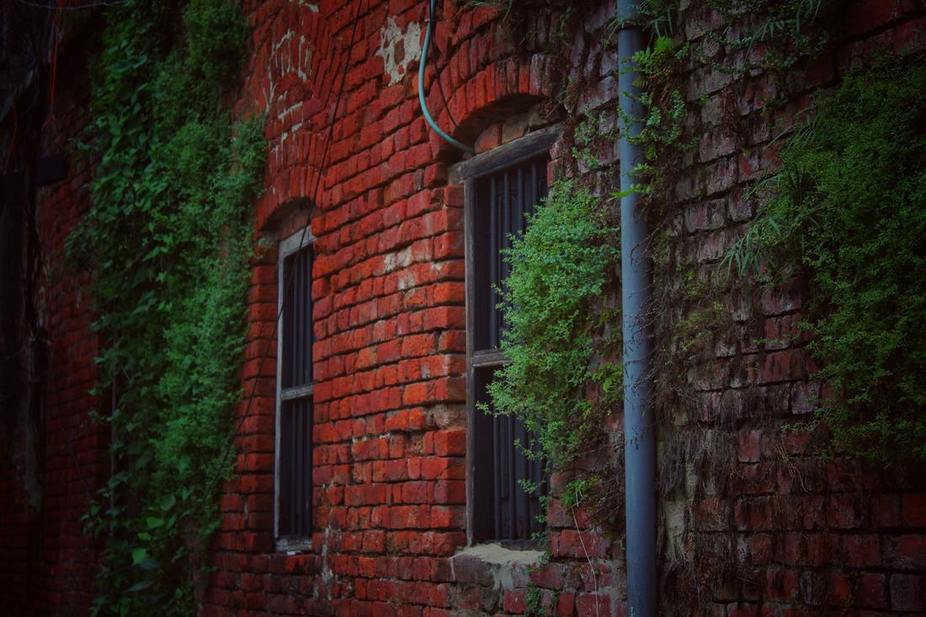
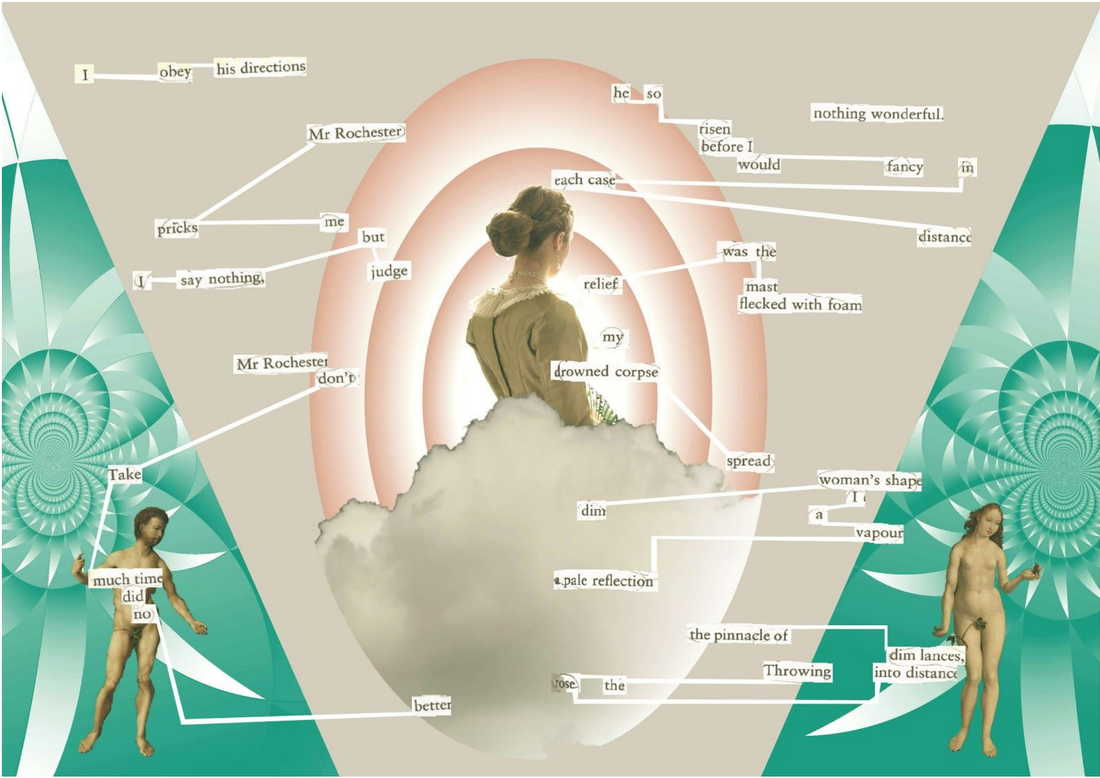
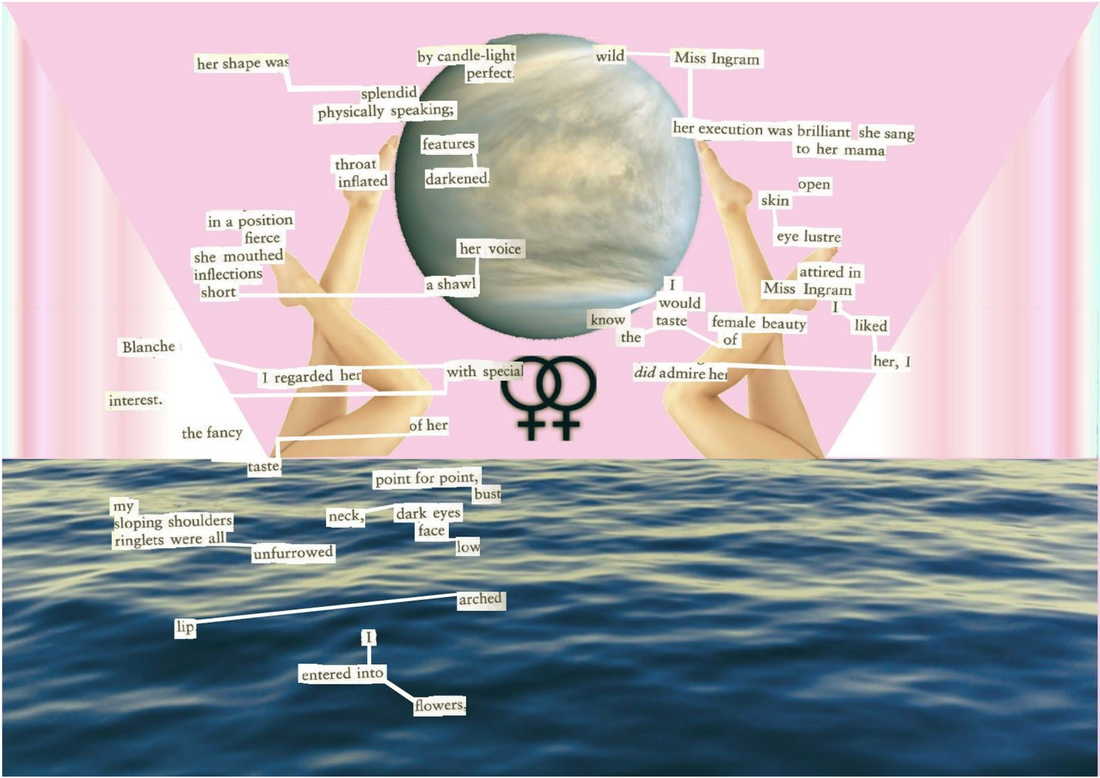
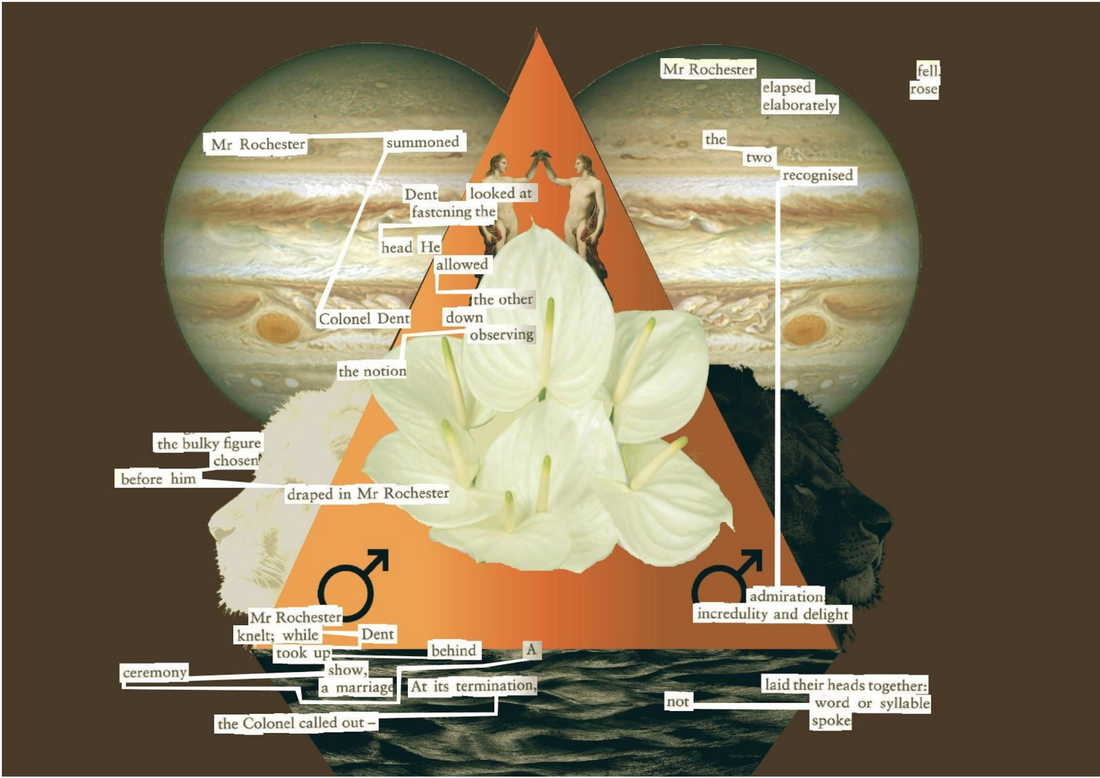
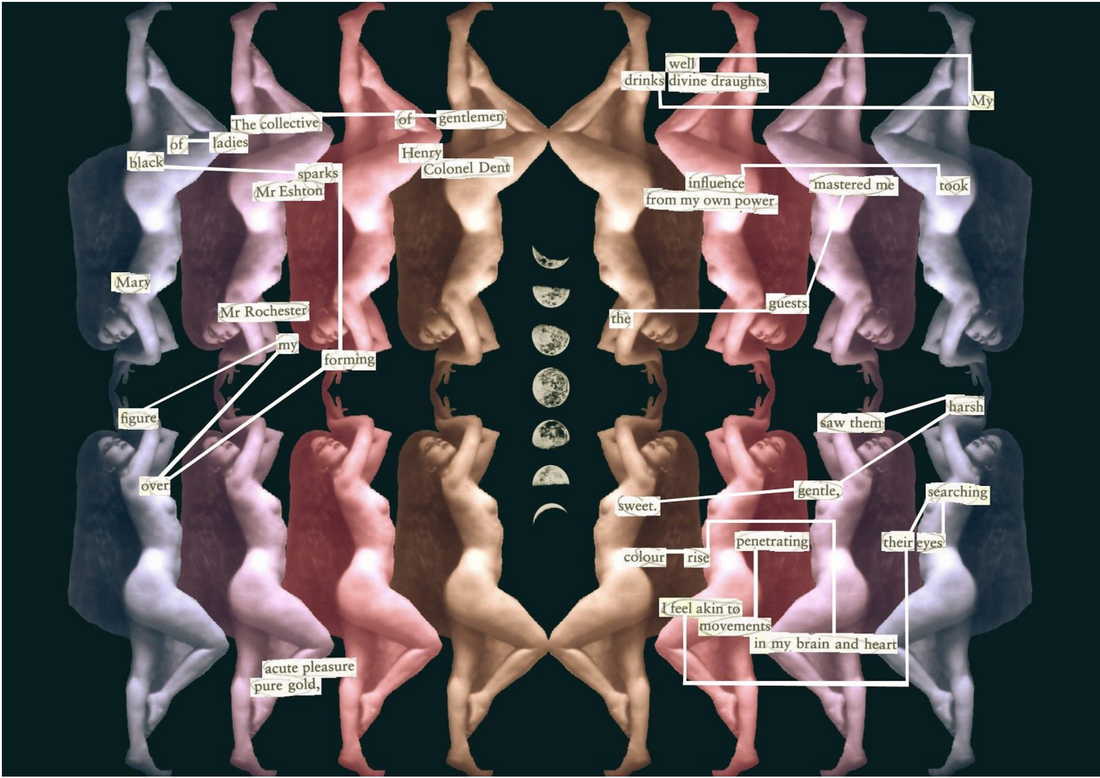

 RSS Feed
RSS Feed
